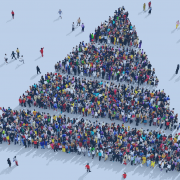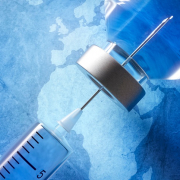Final Conference: ‘Health Inequalities: New Methods, Better Insights?’

Hosted virtually by the Royal Netherlands Academy of Arts and Sciences (KNAW) on 8 December, the conference served as the official presentation of the final report produced within the cross-disciplinary ALLEA-FEAM Health Inequalities project.
The ALLEA-FEAM report presented at the conference highlights new analytic methods that can help the scientific community to better understand the causal relationship of certain social determinants, such as education, occupational class, and income level, in generating and reproducing health inequalities in Europe. Examples of such new methods include “counterfactual” approaches to assess the causal effect of socio-economic conditions on health, and “natural experiments” to evaluate the to evaluate the impact of policy interventions on health inequalities.
The conference was chaired by Professor Johannes Siegrist, Medical Faculty of the Heinrich Heine University Düsseldorf and member of the ALLEA-FEAM Scientific Committee on Health Inequalities. Speakers included Professor Johan Mackenbach, Director of the Department of Public Health at the Erasmus University in Rotterdam and Chair of the ALLEA-FEAM Scientific Committee; Professor Sjaak Neefjes, Professor of Chemical Immunology at Leiden University Medical Center and KNAW Board Member; and Professor Ana Diez Roux, Professor of Epidemiology at Drexel University, among other experts.

Professor Annette Grüters-Kieslich delivers the closing remarks on behalf of ALLEA.
The closing remarks were delivered by Professor Emeritus of Pediatrics at Charité and ALLEA Vice Pre-sident, Annette Grüters-Kieslich. Professor Grüters-Kieslich praised the interdisciplinary nature of the study and called for a rethinking of research into health inequalities not only at a national level, but also at a European level, as the mechanisms and consequences of inequalities in health transcend political borders. On the value of the report, Professor Grüters-Kieslich remarked:
I am confident that if stakeholders from research, policy, and the wider society come together, there is a potential to see a timely change for the better. The valuable report certainly delivers the necessary data to facilitate immediate actions.
This conference represents the conclusion of the joint ALLEA-FEAM-KNAW project on the topic of health inequalities. You can watch the full conference below or on the KNAW website.
Read the ALLEA-FEAM report ‘Health Inequalities Research: New methods, better insights?’: Short version / Full report.
Learn more about the ALLEA-FEAM-KNAW joint project on health inequalities here.







